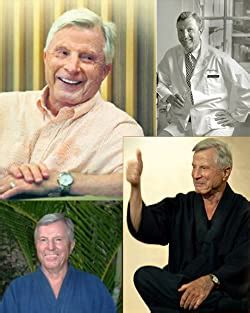A Quote by David Hume
There is a very remarkable inclination in human nature to bestow on external objects the same emotions which it observes in itself, and to find every where those ideas which are most present to it.
Related Quotes
Art is the microscope of the mind, which sharpens the wit as the other does the sight; and converts every object into a little universe in itself. Art may be said to draw aside the veil from nature. To those who are perfectly unskilled in the practice, unimbued with the principles of art, most objects present only a confused mass.
The impossibility of separating the nomenclature of a science from the science itself, is owing to this, that every branch of physical science must consist of three things; the series of facts which are the objects of the science, the ideas which represent these facts, and the words by which these ideas are expressed. Like three impressions of the same seal, the word ought to produce the idea, and the idea to be a picture of the fact.
According to the technical language of old writers, a thing and its qualities are described as subject and attributes; and thus a man's faculties and acts are attributes of which he is the subject. The mind is the subject in which ideas inhere. Moreover, the man's faculties and acts are employed upon external objects; and from objects all his sensations arise. Hence the part of a man's knowledge which belongs to his own mind, is subjective: that which flows in upon him from the world external to him, is objective.
In every remodelling of the present, the existing condition of things must be supplanted by a new one. Now every variety of circumstances in which men find themselves, every object which surrounds them, communicates a definite form and impress to their internal nature. This form is not such that it can change and adapt itself to any other a man may choose to receive; and the end is foiled, while the power is destroyed, when we attempt to impose upon that which is already stamped in the soul a form which disagrees with it.
In studying the action of the Analytical Engine, we find that the peculiar and independent nature of the considerations which in all mathematical analysis belong to operations, as distinguished from the objects operated upon and from the results of the operations performed upon those objects, is very strikingly defined and separated.
What actions are the most excellent? Those, certainly, which most powerfully appeal to the great primary human affections: to those elementary feelings which subsist permanently in the race, and which are independent of time. These feelings are permanent and the same; that which interests them is permanent and the same also.
There's one uneasy borderline between what is external and what is internal, and this borderline is defined exactly by the sense organs and the skin and the introduction of external things within my own body. Consciousness is altered by physical events and physical objects, which impinge upon my sense organs, or which I introduce into my body. Now the name traditionally given to external objects or processes which change you internally is sacrament. Sacraments are the visible and tangible techniques for bringing you close to your own divinity.
The psyche is the inward experience of the human body, which is essentially the same in all human beings, with the same organs, the same instincts, the same impulses, the same conflicts, the same fears. Out of this common ground have come what Jung has called the archetypes, which are the common ideas of myths.
Know that for the human mind there are certain objects of perception which are within the scope of its nature and capacity; on the other hand, there are, amongst things which actually exist, certain objects which the mind can in no way and by no means grasp: the gates of perception are closed against it.
To cherish and stimulate the activity of the human mind, by multiplying the objects of enterprise, is not among the least considerable of the expedients, by which the wealth of a nation may be promoted. Even things in themselves not positively advantageous, sometimes become so, by their tendency to provoke exertion. Every new scene, which is opened to the busy nature of man to rouse and exert itself, is the addition of a new energy to the general stock of effort.
In libertinage, nothing is frightful, because everything libertinage suggests is also a natural inspiration; the most extraordinary, the most bizarre acts, those which most arrantly seem to conflict with every law, every human institution... even those that are not frightful, and there is not one amongst them all that cannot be demonstrated within the boundaries of nature.
My concern today is with the painting of manners of the present. The past is interesting not only by reason of the beauty which could be distilled from it by those artists for whom it was the present, but also precisely because it is the past, for its historical value. It is the same with the present. The pleasure which we derive from the representation of the present is due not only to the beauty with which it can be invested, but also to its essential quality of being present









































